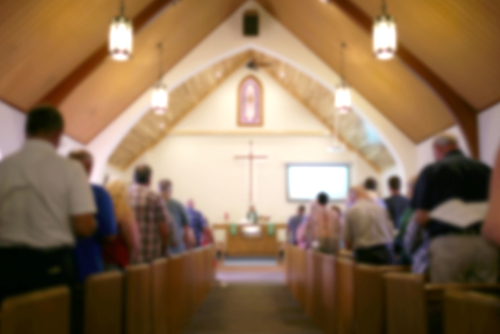In Helen Simonson’s novel “Major Pettigrew’s Last Stand,” the title character is talking to a morally conflicted, yet reflective, young Muslim. He advises the young man: “I think a life of faith must start with remembering that humility is the first virtue before God.”
The seed of this thought can be applied to our prayer as a Catholic community. Sunday Mass begins in the context of this kind of humility. Some of the first words of our ritual prayer direct us to “acknowledge our sins and so prepare ourselves to celebrate these sacred mysteries,” and as the Roman Missal says, “A brief pause for silence follows.” These ritual words put us in our proper place before God.
We must have knowledge of ourselves as incomplete without God, and intimately connected to God. We belong to God. God does not belong to us!
The liturgical theologian Catherine Vincie says of Mass in “Celebrating Divine Mystery: A Primer in Liturgical Theology”: “The initiative is from God, not humanity; any giving that we do is a consequence of God’s initial desire to reach out toward us in self-emptying love.” We can give of ourselves because it is God who first gives to us, and in this mutual giving, all of life glorifies God. It is not we who are glorified, it is God.
Our work in the liturgy is to allow ourselves to be sanctified again and again by God’s presence, to be bathed in God’s self-emptying love so that we are transformed, and live more according to God’s likeness with each passing day. Vincie says that the liturgy is about a “mutual presencing.” In pure and truthful humility, we make ourselves present to God and in so doing, we can know God as present to us through remembrance in Jesus Christ.
Mark Searle, another liturgical theologian, said long ago that “it is not only bread and wine which are transformed in the liturgy; we are to be transformed by associating ourselves in the self-sacrifice of Jesus, that God may raise us up continually to newness of life. But it does not end there, for bread and wine are transformed so that we might be transformed, and we are transformed so that the Church might be transformed, and the Church is to be transformed continually so that the world itself might be transformed by being rebuilt under the rule of God for the well-being of all humanity” (“Liturgy Made Simple,” p. 28).
Our wounded and weary world needs so desperately to be rebuilt, renewed, re-shaped under the rule of God. We thought we knew how to do that, but the circumstances in our culture today, or the work of the Holy Spirit, seem to be telling us that we do not. Perhaps we need to abandon our place of certainty. Perhaps we need to return to a place of humility. Perhaps the liturgy has more to teach us than we might have thought, if we let it.
If we take the time during Mass to acknowledge our sinfulness, letting silence teach us, then we can journey to the place of true humility in our hearts and minds. If our personal prayer and relationship with God throughout the week is strong, “a brief pause for silence” will bring us to the “proper disposition” called for as participants in the Mass.
But not many of us have circumstances in our lives that allow us to spend a good deal of time in prayer during the week. This means that our shared silence in the penitential rite at the beginning of Mass is even more important. It is more silence, not more words, that will bring the constant drive of our hectic lives to a complete stop before the presence of God in humble adoration. It is in silence that we can acknowledge our need for God.
If we are too filled with ourselves and our constant activity, there is no room for God. At Mass, in the penitential rite, we need the silence necessary to liberate ourselves from all ego, power, self-righteousness, personal achievement, and pride. We need “self-emptying” time. We need silent time to ask God to forgive us for the ways we have acted that did not breathe holiness into the world around us.
In the liturgy, we are formed in the reality that everything belongs to God, and exists to live according to the way of God in the world. Living a Eucharistic life means being transformed in and by that holy presence. Our liturgy manifests that faith, and begins with the virtue of humility. Our liturgy must be rooted in humility if it is to have its transformative effect in us and in our world.
Start your day with Always Forward, our award-winning e-newsletter. Get this smart, handpicked selection of the day’s top news, analysis, and opinion, delivered to your inbox. Sign up absolutely free today!

